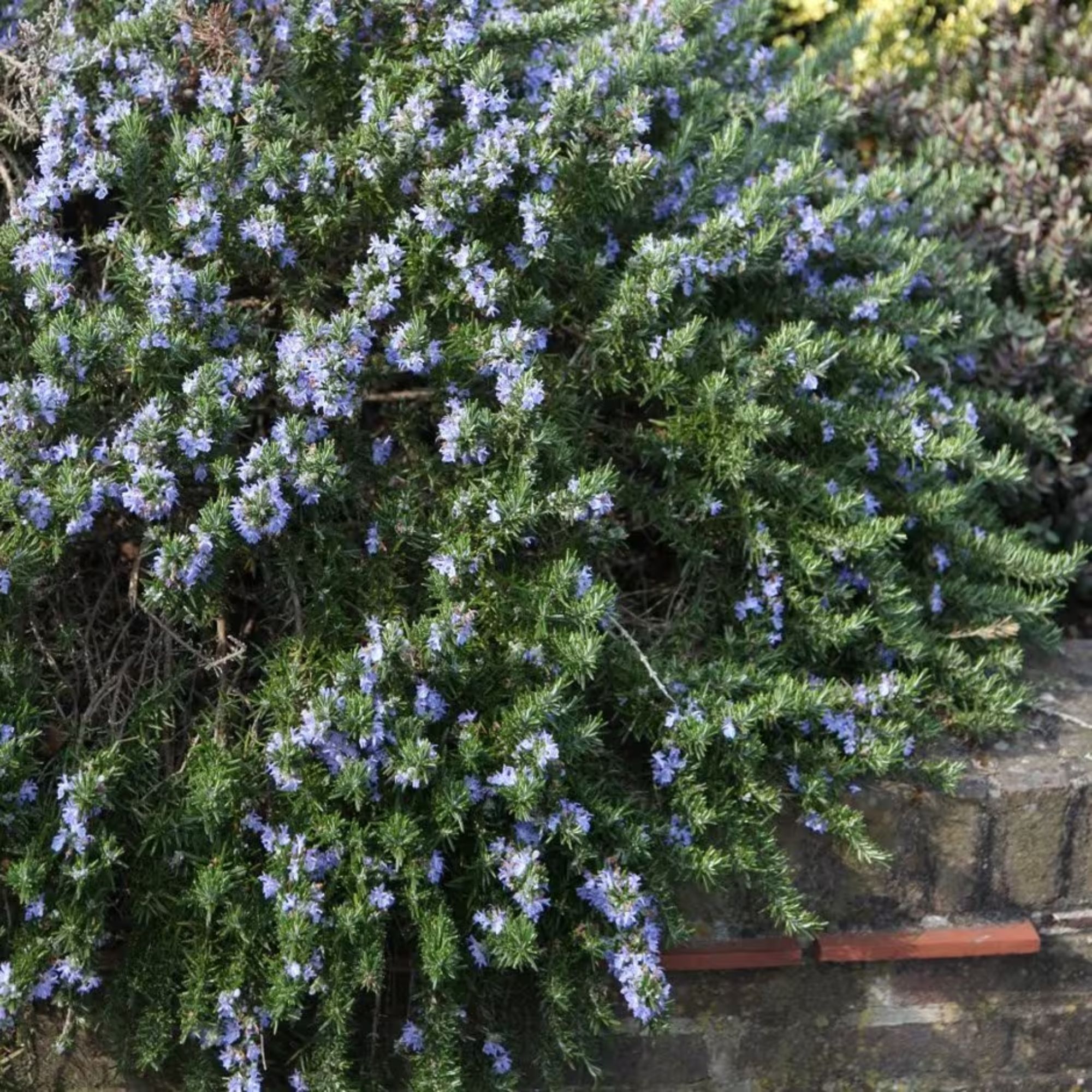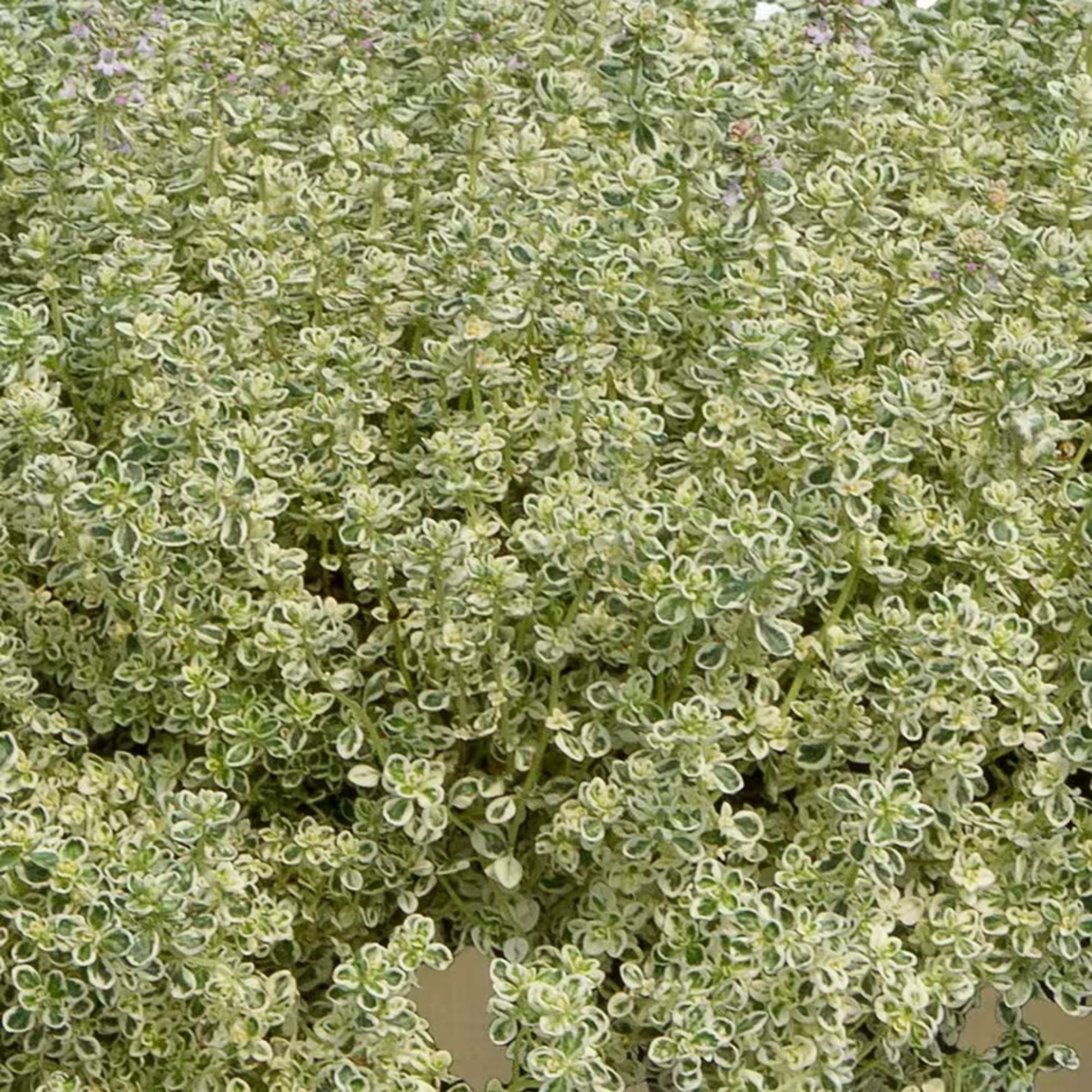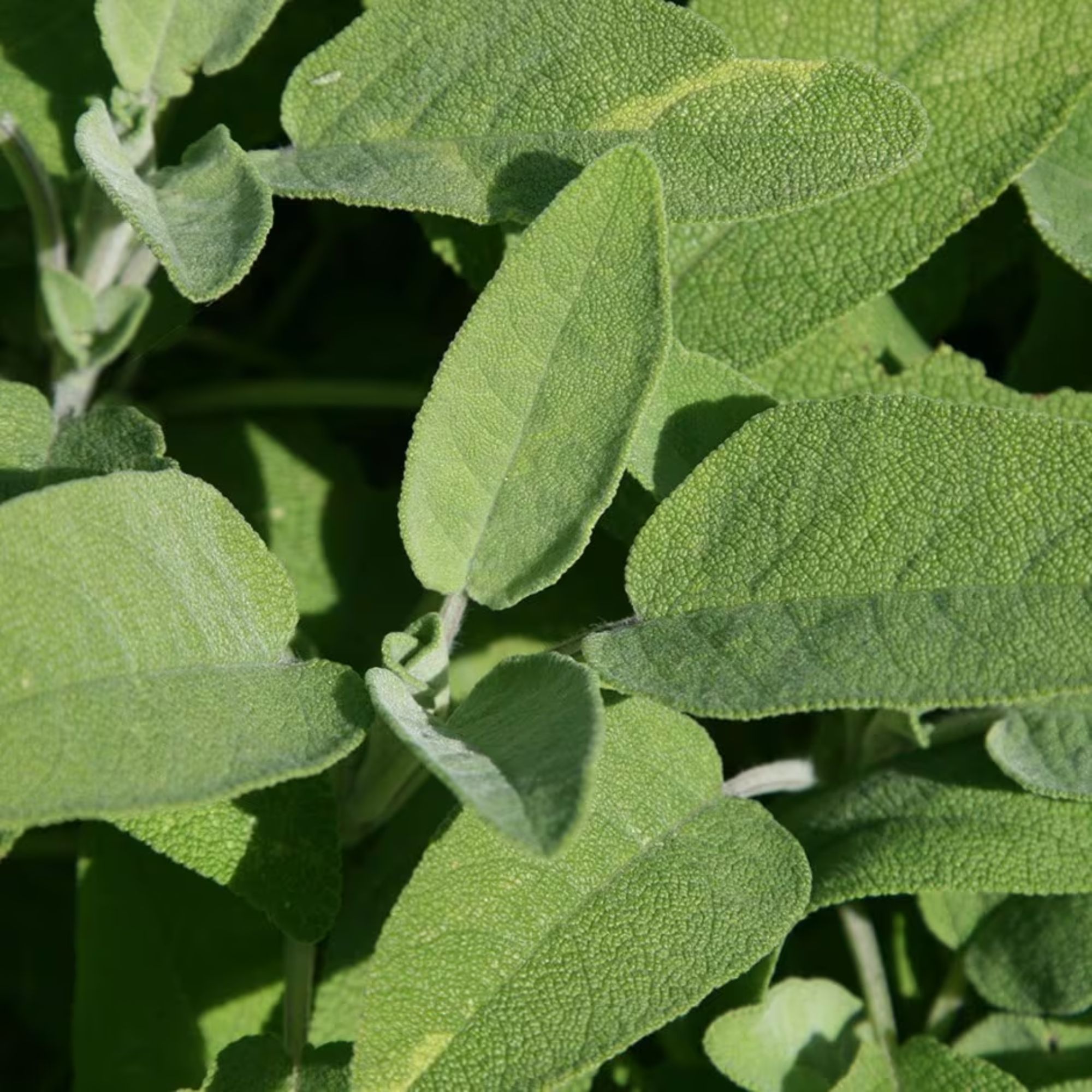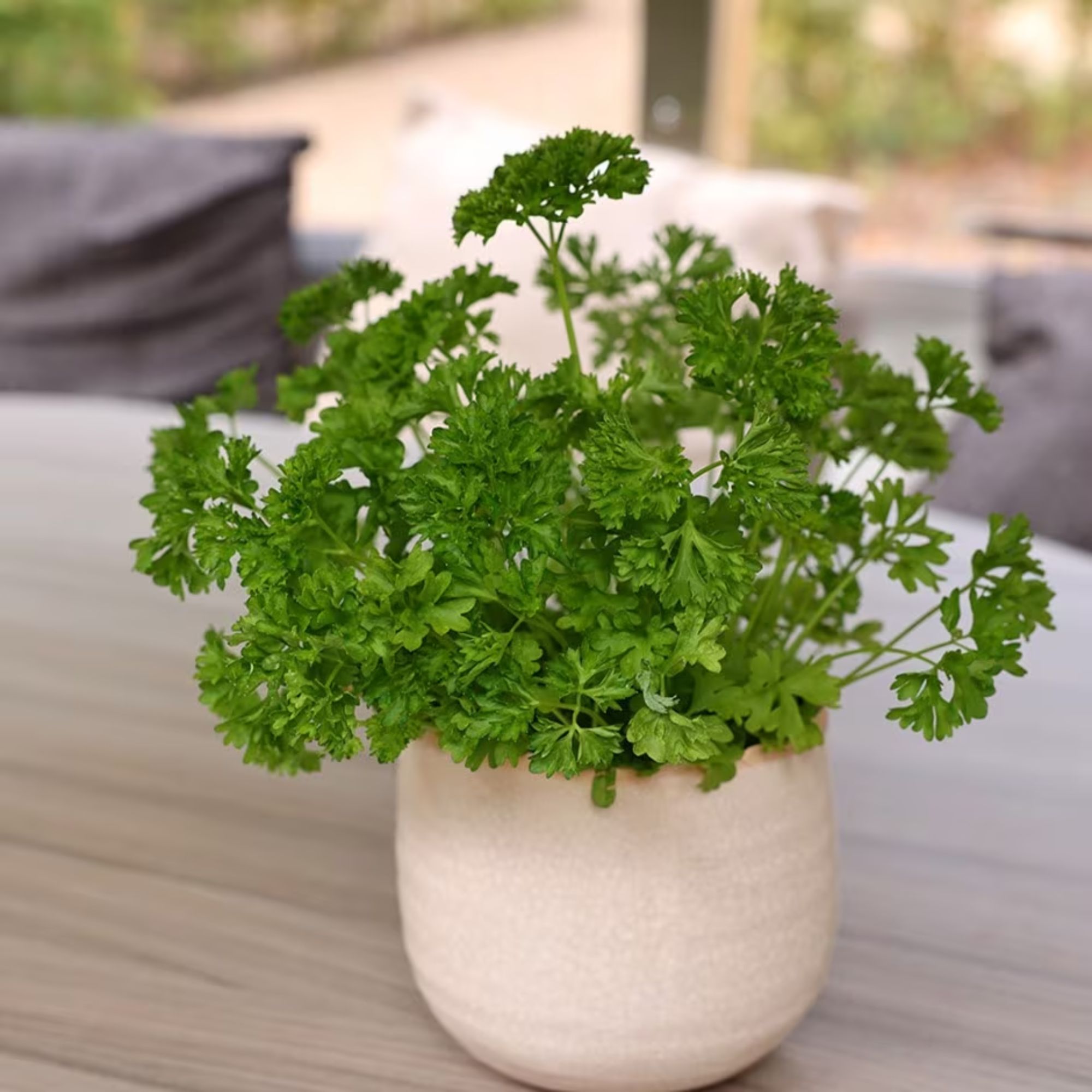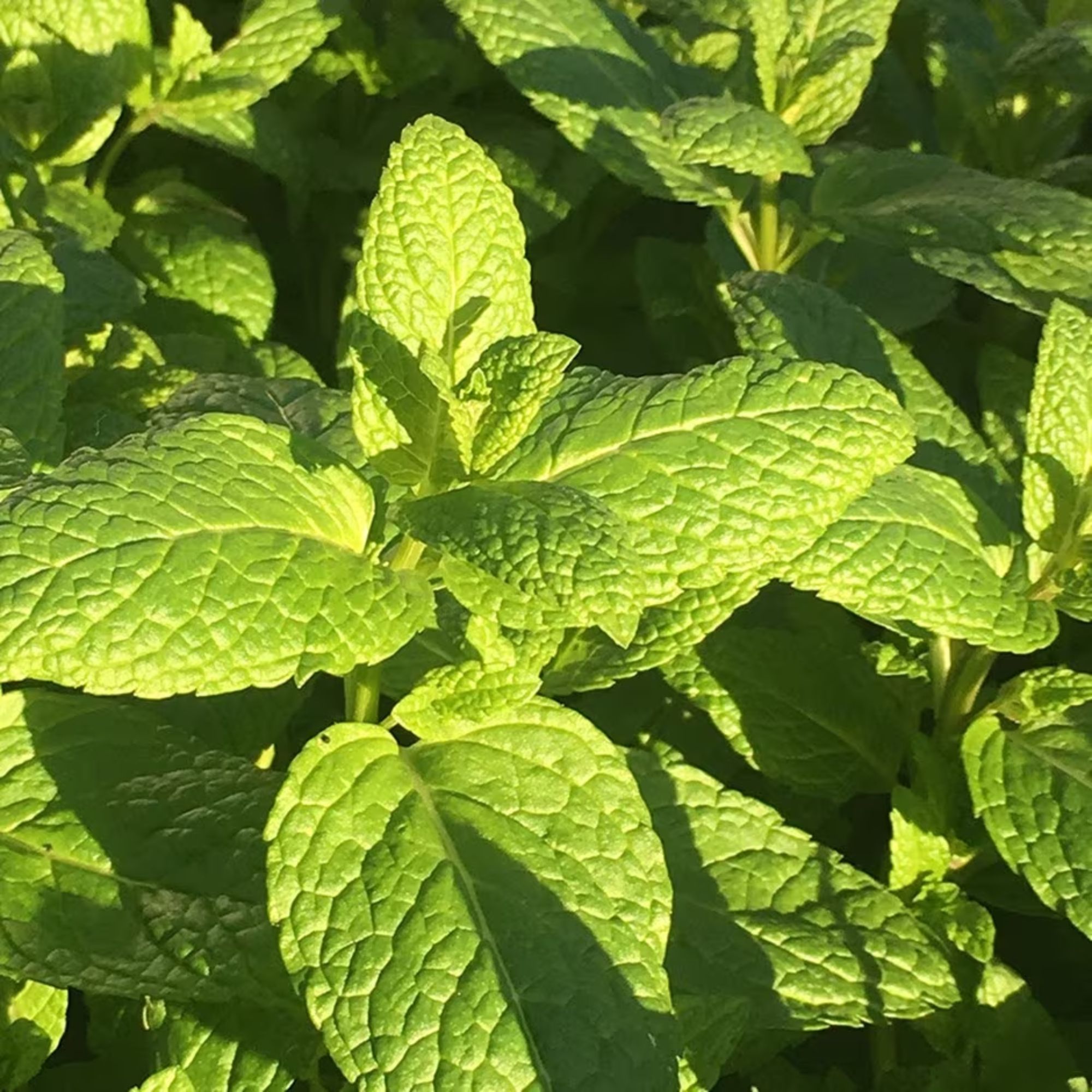Want a delicious festive feast? Here's how to make your Christmas herb garden work harder than ever
Because Christmas herbs can make or break a roast dinner


To paraphrase Yotam Ottolenghi, Christmas herbs deserve to be used much more liberally – but, rather than spend a fortune on shop-bought stuff that'll wilt the minute it hits the fridge, we recommend making the most of your own herb garden.
Now, there are some key players in a roast dinner. So, when it comes to harvesting herbs for Christmas, you'll want to make sure you've planted rosemary, thyme, sage, parsley, and mint.
How best to grow them, though? How best to harvest them? And, most importantly, how can we make our Christmas herb garden work harder than Santa Claus himself come the 25 December?
The very best Christmas herbs
Whether you're new to the world of edimentals or have been growing your own fruit and vegetables for a while now, it's every bit as important to know how to plant and harvest your Christmas herbs as it is how you'll use them in your holiday cooking.
Here's all the facts you need to ensure your roast goes down an absolute treat.
1. Rosemary
One of those iconic Christmas herbs, knowing how to grow rosemary is a must-have for any cook – particularly as it's counted among the easiest vegetables to grow.
'This hardy herb has a preference for slightly alkaline soil conditions and is tolerant of lower water levels,' says Sean Lade, gardening expert and director of Easy Garden Irrigation.
Sign up to our newsletter for style inspiration, real homes, project and garden advice and shopping know-how
'In terms of watering, it's best to water deeply but infrequently, giving the soil a chance to dry out between waterings, as this prevents the roots from becoming waterlogged and promotes healthier growth.'
Sean adds that 'the great thing about rosemary is that you can pick it all year round' (in fact, regular pruning is essential), which makes it perfect for holiday cooking.
'Over the festive period, rosemary can serve multiple purposes,' he says. 'You can trim some branches and use them as a fragrant festive decoration around your home, infusing the air with its delightful scent.'
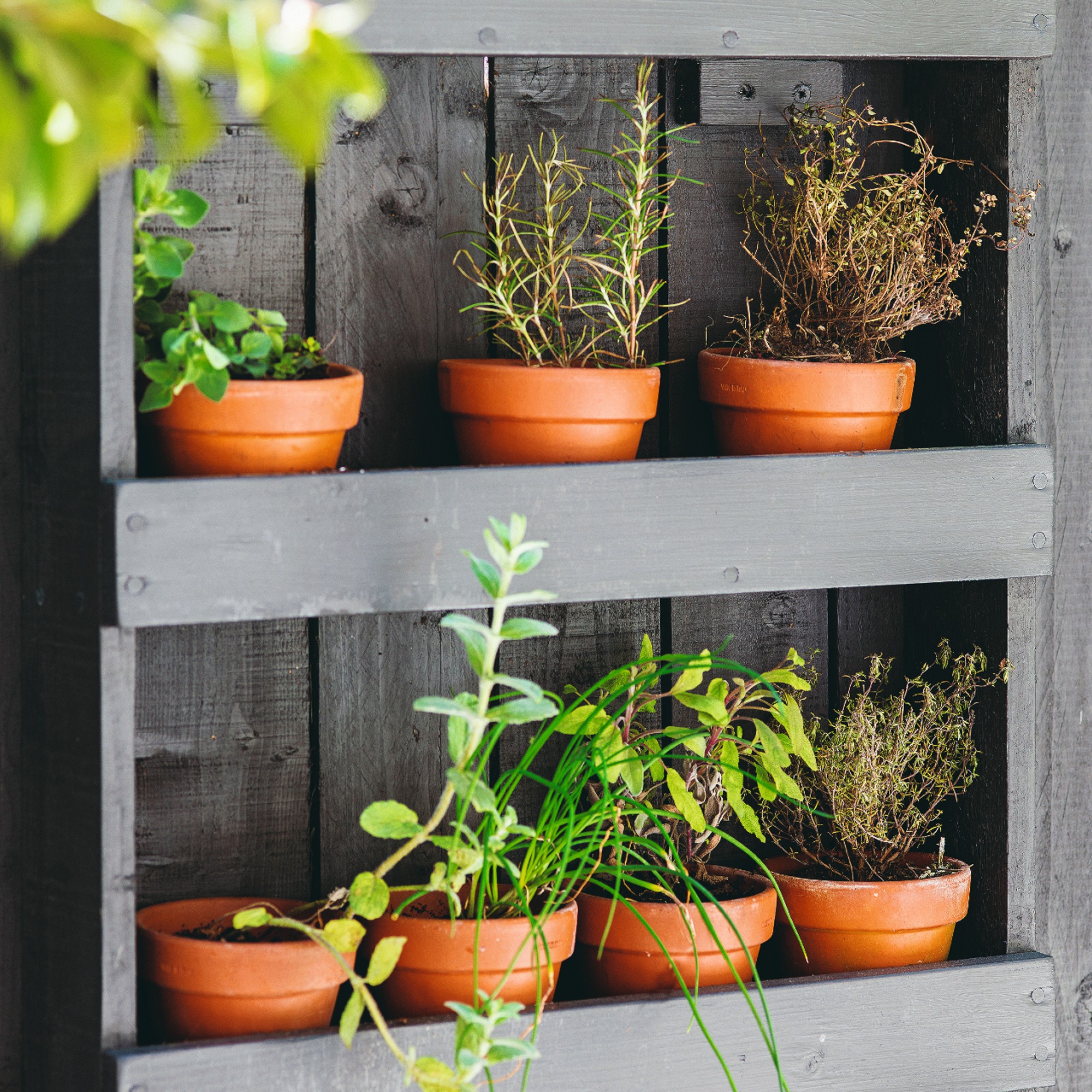
Sean goes on to point out that rosemary pairs beautifully with meat dishes like roasted turkey or lamb, and that it can also elevate your roasted potatoes to heavenly new heights.
'The aromatic, earthy rosemary flavour is a quintessential addition to your holiday culinary creations,' he says.
Thank goodness it thrives in pots and containers, then, as it means we can keep it on our kitchen windowsill and within easy reach at all times!
2. Thyme
We already know how to propagate thyme, but it can just as easily be conveniently grown from seeds or cuttings.
'If you opt for seeds, begin the process indoors during early spring,' says Sean. 'Sow your thyme seeds in light, free-draining soil, an ideal environment to facilitate germination and growth.'
He adds that thyme thrives in warm, sunny locations, so it's important to select an appropriate spot for your plants.
'Its watering needs are moderate, and it's best to let the soil dry out between waterings to prevent over-saturation,' says Sean.

It's important to remember to cut the stems of your thyme at the base when it's time to harvest this Christmas herb, as it preserves the plant and ensures a continuous supply of fresh thyme for your holiday dishes.
'After thyme has flowered, it's a good practice to trim it back. This promotes regrowth and keeps your thyme plants healthy and productive,' says Sean.
'Thyme is a perfect herb for Christmas Day dinner. Its versatile flavour complements a wide range of dishes, making it an excellent addition to your holiday menu. Use it to season your roasted meats, and stews, or use in herb-infused butter for a delectable touch to your festive feast.
3. Sage
One of our favourite Christmas herbs, 'sage is a versatile herb that can thrive in well-drained and organic soil, and an excellent option for both indoor and outdoor cultivation,' says Sean.
To harvest sage, he suggests that you simply pick the leaves as needed, making sure to leave at least a third of the foliage intact. This practice will promote a healthy and long-lasting plant.
'During the holiday season, sage becomes a valuable addition to your kitchen,' continues Sean.
'Its earthy, aromatic flavour pairs wonderfully with pork dishes and is an essential ingredient for homemade stuffing. Use freshly harvested Sage leaves in your stuffing mix for a delightful, Christmas-inspired flavour that will impress your guests.'
4. Parsley
If you followed Monty Don's tips for sowing parsley earlier this year, you'll likely have a bumper crop to add to your collection of Christmas herbs already. If not, though, don't worry: parsley is easily propagated from seeds.
'To begin, sow the seeds either directly in the garden or in pots that contain well-draining soil,' says Sean. 'During the crucial germination period, ensure the soil remains consistently moist. Then, once the seedlings are well established, proceed to thin them out, allowing only the most robust ones to continue growing.'
Noting that this herb prefers partial shade, Sean adds that you can encourage bushier growth by 'pinching off the outer stems of the plant, allowing the inner ones to flourish'.
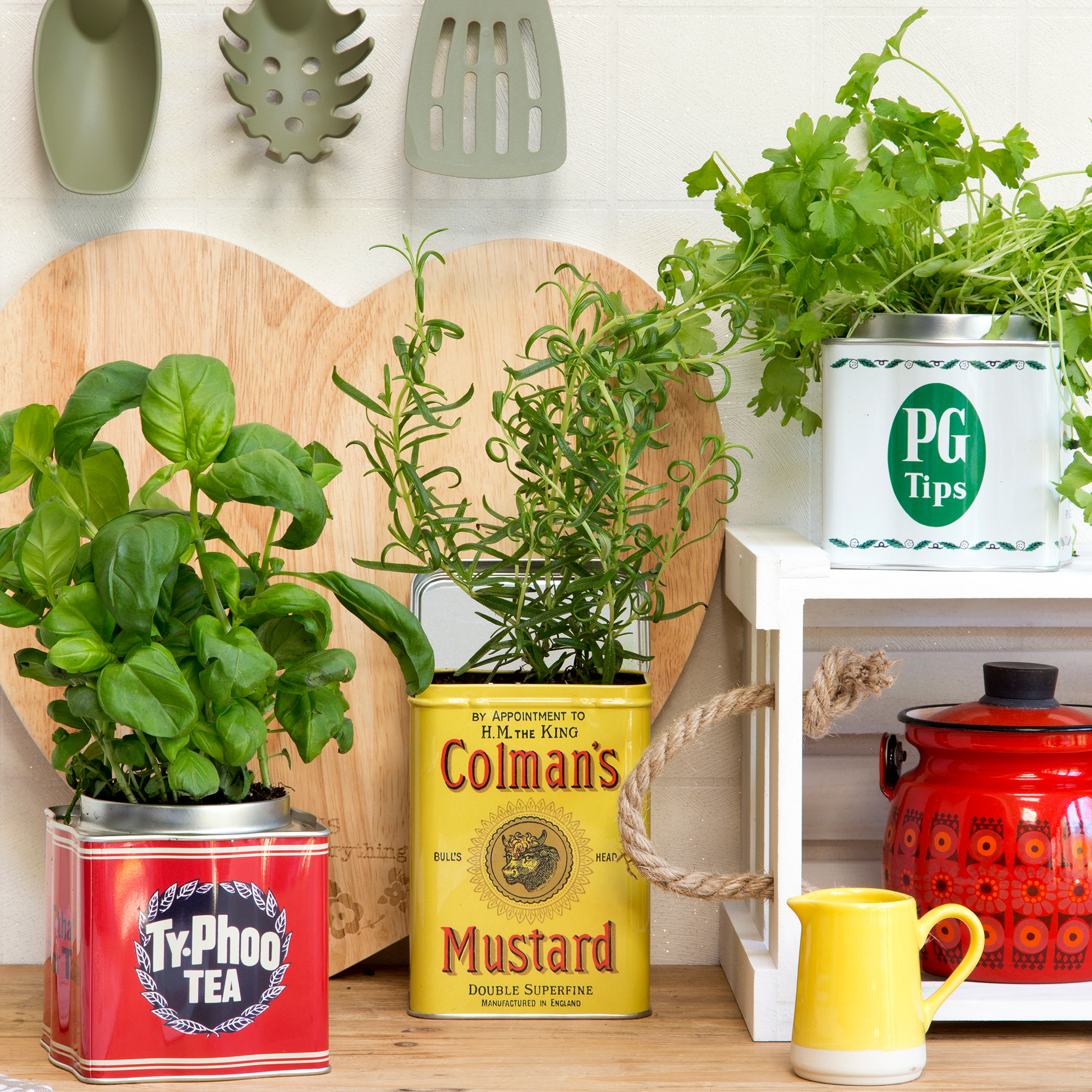
'Fresh parsley serves as an excellent garnish for your festive dishes,' finishes Sean, citing it as one of the very best herbs for Christmas you can grow for that reason.
'Sprinkle it over your main courses, add it to salads for a burst of flavour, or use it to make delicious herb butter that can enhance the taste of your Christmas dinner. Parsley is a must-have herb for adding a touch of freshness to your holiday meals.'
5. Mint
Whether you prefer to grow it from seed, or learn how to grow mint from cuttings, this versatile Christmas herb is a must-have for the festive season.
'Thriving in well-drained soil with partial shade, mint is suitable for both garden beds and containers,' says Sean. 'To harvest, snip the leaves and stems, allowing the plant to keep growing.'
He adds that 'its cool, refreshing flavour makes it perfect for garnishing Christmas beverages and enhancing desserts like chocolates and pies'.
'Additionally, mint can elevate savoury dishes, adding a festive touch to roasted vegetables, sauces, and meat marinades,' he says, noting that mint's invigorating aroma can enhance your entire Christmas menu throughout the season.
FAQs
What herbs are used at Christmas?
The five core Christmas herbs any chef needs over the holidays are mint, rosemary, parsley, thyme, and sage – although a fair few people may also like to stock up on bay, oregano, and lavender, too!
What herbs do I need for Christmas dinner?
If you only grow one herb for Christmas, make it rosemary: it can be used to elevate your meat dishes every bit as well as it can your potatoes and gravy! Thyme, too, is a must for anyone serving turkey – and lots of people like a sage and onion stuffing, too.
Is sage easy to grow?
Sage is one of the easiest Christmas herbs to grow from scratch.
'To start sage from seed, begin in springtime,' says Sean. 'Sow the seeds into small pots or trays filled with seed compost, and top with a thin layer of perlite. Place your planted seeds in a propagator, or alternatively, cover them with a polythene bag and position them on a warm windowsill.'
Patience is key, as sage seeds can take up to three weeks to germinate.
'Once they sprout, transfer your seedlings into modules or pots for further growth, continues Sean. 'Once your young sage plants have reached a height of about 10cm (4in), and all danger of frost has passed, they're ready to move outdoors.'
'Prior to this transition, ensure to harden them off, gradually acclimating them to outdoor conditions. In terms of placement, choose a spot that offers full sun, which sage thrives in.'
'Sage is a woody perennial herb. To keep the plant compact and bushy, prune it in early spring by cutting back any woody growth. Regular watering is crucial for sage until the plant becomes established, after which you can reduce watering frequency.'
Now that you know which Christmas herbs you need to make your festive feast as delicious as it can be, it's time to go forth and harvest them while you can.
And remember: even the most meagre of fare can taste like a royal banquet, if only you use the right herbs. Bon apetit!

Kayleigh Dray became Ideal Home’s Acting Content Editor in the spring of 2023, and is very excited to get to work. She joins the team after a decade-long career working as a journalist and editor across a number of leading lifestyle brands, both in-house and as a freelancer.
